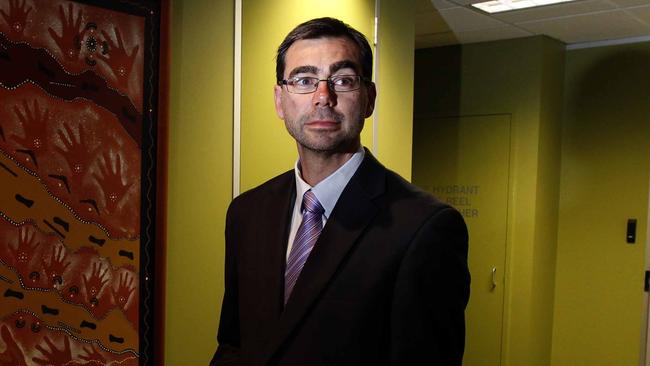Australia last in queue for medical firsts
Australia is at the ‘back of the queue’ for access to new medicines and medical devices, with an approvals process mired in red tape.

Australia is at the “back of the queue” for access to new medicines and medical devices, with an approvals process mired in red tape and outdated methodologies.
That’s the view of one of the world’s biggest pharmaceutical companies, Johnson & Johnson, which is calling for an overhaul of Australia’s systems for approving new drugs and medical technology.
Australia ranks 17th out of 20 OECD countries for access to new medicines, the author of a new report on the issue said.
“I think we’re at a point where there’s a number of questions about how Australia values medicines and vaccines and medical devices and assess to those,” said Brendan Shaw, a former CEO of Medicines Australia. “Those problems are becoming more pronounced and I think the pandemic has shone a spotlight on some of these issues as well.

“We need to review the value that the assessment processes place on long-term health versus the short-term costs of healthcare.
“The impact of all of these issues is that there are delays in Australians getting access to new medicines, new vaccines and new medical devices. The fact is Australians are usually never first in the queue.”
The report calls for the main body that makes recommendations to fund medicines on the Pharmaceutical Benefits Scheme, the Pharmaceutical Benefits Advisory Committee, to focus on the value of health technology and the number of life years that could be saved, rather than primarily considering cost and budgetary impact.
“Personalised medicine, individualised sensor-driven technologies, robotics, artificial intelligence, 3D printing and the interconnected global manufacture and supply chain for many medical technologies have exposed the outdated nature of the assessment and reimbursement frameworks in Australia,” the report says. “The speed at which Covid-19 vaccines have been brought to market has demonstrated that there can be a faster, simpler way to deliver innovation to the Australian community safely. This is in stark contrast to the usual pathway to market for a medicine or medical device.
“The hallmarks of the Australian system for drug and device approvals have been excessive administrative costs and inefficiencies in evaluation processes, a focus on short-term cost-saving over long-term investment in strategic capability, and Australians having one of the longest waiting times in the world for access to new medical technologies that make their lives better.
“These tensions will only get worse without sensible policy reform.”
Some of the key drugs that Australians lack access to compared to those in other OECD nations are new cancer therapies. Prices for medical devices in Australia are also well above prices in comparable countries.
Mr Shaw said that because Australia’s approval processes were too lengthy and bureaucratic, pharmaceutical companies tended to place Australia at the “back of the queue” in offering new drugs to the market.
“As other countries, including emerging markets, develop their healthcare systems, Australia is becoming a relatively smaller market in a global market, so we need to be make sure our systems are timely, based on best practice, recognise value and help us stay in the top tier of countries internationally when it comes to accessing new medicines and new medical devices.” The report also calls for Australia to develop its own capability to research, commercialise and manufacture medical technologies.






To join the conversation, please log in. Don't have an account? Register
Join the conversation, you are commenting as Logout